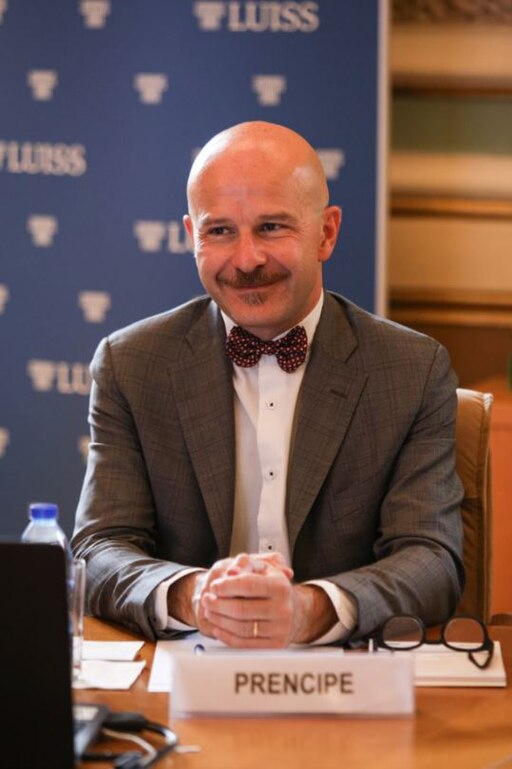On Wednesday, April 30, 2025, the Casa Italiana Zerilli-Marimò at New York University will host a public conversation around the book The Grammar of Innovation (Palgrave Macmillan, 2024), written by Andrea Prencipe and Massimo Sideri. The event — titled Is Innovation Grammatically Correct? and organized in collaboration with AIRIcerca – New York Chapter — will bring together voices from academia, culture, and business in an open, interdisciplinary exchange. It aims to move beyond conventional divides between research and enterprise, and explore innovation as a deeply human, cultural, and philosophical phenomenon.
Prencipe is not just a scholar. He’s someone who reads Calvino and places him at the heart of an ambitious reflection: innovation, he argues, needs literature — because without imagination, it cannot exist. “The title is deliberately provocative,” he explains, “because innovation has no fixed rules. In fact, it’s the act of creating new ones.” The book talks about “grammar” to suggest that, like language, innovation is built over time — somewhere between logic and intuition, structure and freedom.
But if there’s grammar, is there also syntax? A word order? And more importantly: what happens when you flip the terms — when technology comes before human needs, rather than following them? “The meaning of the sentence changes,” he says. “The ethics of innovation are compromised. Supply can’t always precede demand, or we risk losing touch with what truly matters. But at the same time, we can’t wait for every need to reveal itself. Great discoveries often anticipate demand. That tension between the known and the possible is what makes innovation such a fertile space.”

D.mircoselliro, CC BY-SA 4.0, via Wikimedia Commons)
The Grammar of Innovation is shaped around the six “American Lessons” Calvino wrote shortly before his death: lightness, quickness, exactitude, visibility, multiplicity, and consistency. Each is examined through the lens of its opposite — heaviness, slowness, vagueness, invisibility, singularity, incoherence — forming a grammar of contrasts. And it’s precisely in those tensions, says Prencipe, that creative sparks are born. “We need people educated to change — not just trained, but inspired. People who can pick up the faint signals that come from distant worlds, from other languages. Like Calvino, who read computer science, philosophy, and physics, not just novels. He had the mindset of an explorer. And that’s exactly the kind of vision we need to innovate today.”
Each chapter of the book becomes a narrative lab, weaving together organizational theory, the history of technology, the philosophy of work, business strategy, and literary insight. More than a thesis, it’s a journey — one that unravels the myth of innovation as linear, exponential, and performance-driven, restoring its real nature: human, messy, ambivalent.
One of the clearest examples comes from neural networks: “The technology behind AI algorithms has existed since the 1960s. For decades it lay dormant, nearly forgotten. Only now, under new conditions, has it become essential. That teaches us that innovation too can sleep. It can wait for its moment.”
The book also lingers on what’s left out of dominant narratives. For Prencipe, it’s in those overlooked spaces that ideas begin to stir, often silently, preparing to emerge. “Innovation,” he writes, “is born at the intersection of words and silences.” And that, perhaps, is the key to the entire project: a grammar not of rules, but of attention. A way of reading change not just for what it says, but for what it’s still struggling to say.
Where other disciplines seek to impose structure and models, literature offers a form of thinking that embraces doubt and ambiguity. And in a world where innovation is too often reduced to technical skill, Prencipe reminds us that vision matters just as much as execution. Without a broader perspective, even the smartest solutions risk becoming blind.
Joining Prencipe in this New York conversation will be Ennio Ranaboldo, a cultural strategist with a background in publishing, business, and global markets; Dennis Yi Tenen, Columbia professor and expert in literary computation and interdisciplinary thought; Josh Whitford, a sociologist of organizations focused on production dynamics; and Benedetta Audia, an international cooperation expert amplifying voices from the world’s less central regions. The discussion will be moderated by CNN journalist Francesca Giuliani Hoffman, known for her nuanced take on cultural complexity.










